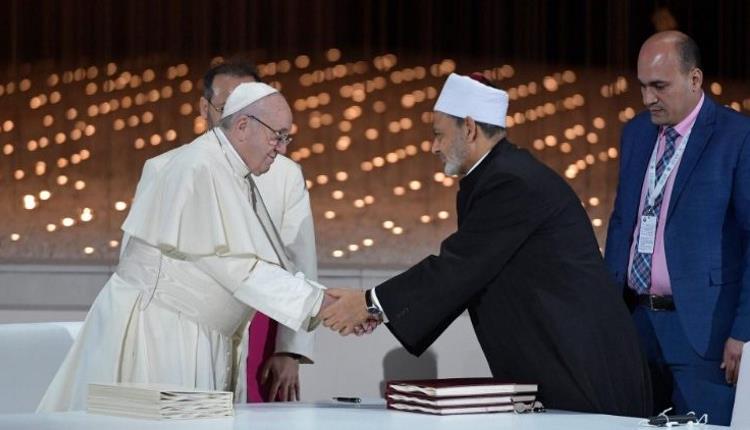Greeting Non Muslims with Salam Alaikum
You once told us that it is okay to greet non-Muslims with “Assalam o Alaikum”. However, I have read in Riyaz-us-salihin by Nawawi the following:
“Abu Hurairah (RA) reports that the Prophet (PBUH) said, ‘Do not say “salam” to the Jews and Christians first and when you meet one of them in the streets force him to move to the side of the street.'” (Muslim)
“Anas reports that the Prophet (PBUH) said, ‘When a person from amongst the Ahl-e-Kitab says “salam” to you, respond by saying “Wa alaikum”.'” (Bukhari, Muslim)
“Usama (RA) reports that the Prophet (PBUH) passed by a gathering in which there were both Muslims as well as Non Muslims, but the Prophet (PBUH) said ‘salam’ to them.”
All of these ahadith are under the heading: “The being ‘haram’ of saying salam to Non Muslims first, and how to respond to them; and the being ‘mustahab’ of saying ‘salam’ to a gathering of both Muslims and non-Muslims”.
Answer
There are two ways of looking at it. One view, which you have also mentioned, takes all these ahadith and verses of Quran that condemn Jews and Christians as applicable to all Jews and Christians of all times. This is so because they believe these people are Kuffar, and therefore not worthy of our sincere respect and prayers.
The other view is that all human beings are worthy of our respect and sincere prayers, except those about whom the Almighty declares that they are not worthy of it. The Jews and Christians, and indeed the polytheists at the time of the prophet, alaihissalaam, were the people who received the message of Allah directly from His messenger and they not only rejected it, but also turned his enemies. They, as a result, ceased to enjoy the status of such people who deserved any further good wishes of Muslims. Since the non-Muslims of today have not been informed about the message as properly as was done at the time of the prophet, and since we can’t be sure that they are really condemned in the eyes of the Almighty for having rejected something that they knew was true from God, we can’t write them off as kuffar, but should establish good relations with them to convince them to come close to Islam. In case we believe that there are some people amongst them who are actively engaged against Islam and Muslims, then it could be a different matter. Opinions could be divided in the case of such people.
Since I believe the second point of view to be the correct one, I think there is nothing wrong for Muslims, who are upholders of Islam (peace), to send messages of “peace be upon you” to non-Muslims. We can never be sure that we have done enough like the prophet, alaihissalaam, did. I would however, not pray for a non-Muslim’s forgiveness after his/her death except in the words that if there was a genuine reason for him/her not to convert to Islam, then, O Allah, please accept it.
Ibrahim, alaihissalaam, continued to pray for his father until such time that he was stopped by the Almighty directly. The Quran says:
“It is not proper for the Prophet and those who believe that they should beg forgiveness for the mushrikin, even though they be their relatives, after it has been explained to them that they are the inmates of hellfire. Ibrahim (Abraham) prayed for his father’s forgiveness only to fulfill a promise he had made to him. But when it became clear to him that he was an enemy of Allah, he disassociated himself from him. The fact is that Ibrahim was tenderhearted, forbearing.” (9:113-4)
Since I can’t be sure whether the present crop of non-Muslims are inmates of hellfire too, I think the above instruction is not applicable to us.

